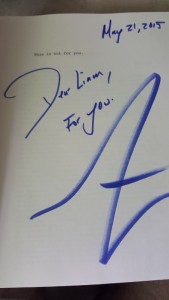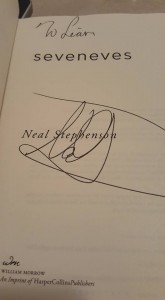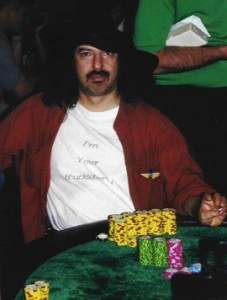A year and a half ago I saw Cory
I really encourage you to listen to at least the first 15 minutes. Cory was one of the first influences on me as I was outgrowing libertarianism some years ago, moving toward anarcho-syndaclism. In this interview, he discusses how it will become necessary to build flat, hierarchy-less organizations to get things done. But most significantly, he talks about how the libertarian ideas that fuel so much of distopian fiction, of “I got mine, now get away from my bunker!” is neither what generally happens in disasters, nor should it be how we think about dealing with disaster.
Catrastrophe WILL happen, whether it’s natural or man-made, that’s a given. Whether “small-scale” or large. But actual experience shows that we humans are communal, cooperative species. We will and do come together by and large to help each other. What individualist looting and shooting and stealing
In the libertarian view of storing your own supplies and guns for the
He references the book Paradise Built in Hell by Rebecca Solnit which looks at examples of human cooperation and communal effort to repair and rebuild after
Related to that, I like how he talks about the failure of “scientific history,” of the failure of vulgar or classical Marxism (and I’m a Marxist), to believe it can predict the future based on the past. How what we need to embrace is dynamic, ever-changing conditions and adaptability. Instead of relying on long-term planning and A-to-Z (he says “zed,” I love Canadians), we need to get good at heuristic creation that allows us to develop in ever-adaptable and improvising steps using networks and flat, cooperative hierarchy.












